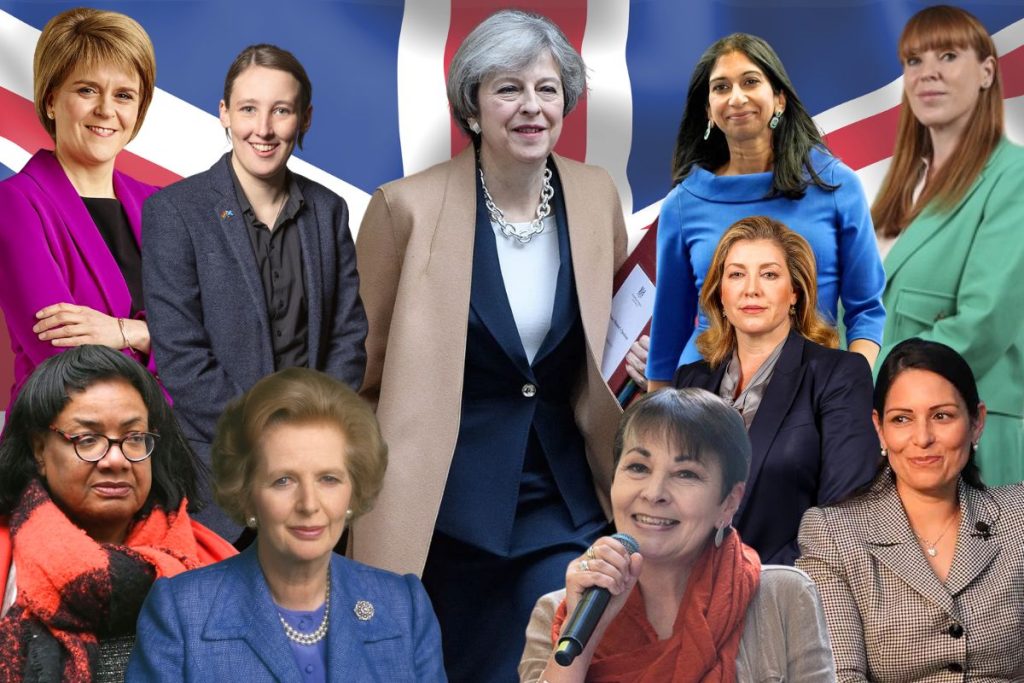

The UK has witnessed the emergence of female politicians who implement social change, formulate national policies, and even impact global affairs. While the struggle for equality has been challenging, women are now making significant advances in Parliament, local government, and party leadership.
Below are 10 important female politicians in the UK who have vividly shaped and continue to shape British politics:
Table of Contents
Britain’s first female Prime Minister, Margaret Thatcher, held office from 1979 to 1990 and headed the Conservative Party. She was given the nickname The Iron Lady because she viewed free-market economics, deregulation, and national defence as vital attributes of Britain.
Key Achievements:
Though divisive, Thatcher’s tenure changed British politics forever. Her legacy includes both admiration for her strength and criticism for deepening social divides.
Theresa May served as the UK’s second female Prime Minister from 2016 to 2019, following David Cameron’s resignation after the Brexit referendum. A member of the Conservative Party, she was also Home Secretary from 2010 to 2016.
Key Focus Areas:
Though her leadership was challenged by Brexit complexities, May’s calm demeanour and dedication to public service earned her respect across the political spectrum.
As the First Minister of Scotland from 2014 to 2023, Nicola Sturgeon led the Scottish National Party (SNP) and was a leading voice for Scottish independence.
Known For:
Sturgeon became a symbol of steady female leadership and was one of the UK’s most recognisable political figures until her resignation in 2023.
Angela Rayner, currently the Deputy Leader of the Labour Party, brings a working-class perspective to British politics. Raised on a council estate and leaving school at 16, Rayner trained as a care worker before entering politics.
What She Stands For:
Rayner’s straight-talking style, authenticity, and connection with ordinary voters have made her a rising star within Labour ranks.
A true pioneer, Diane Abbott was the first Black woman elected to Parliament in 1987. Representing Hackney North and Stoke Newington for Labour, she has consistently championed equality and civil liberties.
Her Focus:
Abbott remains a powerful voice for under-represented communities and continues to face—and rise above—persistent media scrutiny and abuse.
Priti Patel served as Home Secretary under Boris Johnson from 2019 to 2022 and was previously Secretary of State for International Development. A prominent Conservative, she has been at the centre of many key policy discussions.
Known For:
Patel has been a vocal supporter of Brexit and presents a firm, no-nonsense style of governance that appeals to traditional Conservative voters.
Mordaunt has served in several significant capacities, rising to the Leader of the House of Commons and Minister of State for Trade Policy. She is a reservist in the Royal Navy, and she captured the public’s attention during the coronation of King Charles III because of her role in the ceremony.
Why She Matters:
Mordaunt’s calm demeanour coupled with her extensive political experience puts her in a favourable position to succeed as Prime Minister in the future.
Braverman has emerged as the most vocal figure in the Conservative Party as the Home Secretary from 2022 to 2023. As a trained barrister, she has established herself as a leading figure on national identity and immigration debates.
Key points:
Even if she is a controversial figure, Braverman does have significant support from the Conservative Party’s grassroots supporters as a result of her strict policies.
When elected in 2015, Mhairi Black of the SNP became the youngest MP to be elected since 1832, at age 20. Representing Paisley and Renfrewshire South, she has been a passionate speaker and advocate for young people.
Political Interests:
Though she announced her decision to step down at the next general election, Black’s legacy as a fierce young voice will endure.
Caroline Lucas has represented the Green Party in parliament as the only MP for the party and used that position to advocate for environmental issues in Parliament for more than a decade. As the MP for Brighton Pavilion, she has a reputation as a reliable, articulate, and evidence-based speaker.
Her Contributions:
Lucas intends to retire from Parliament during the next general election.
More and more women are becoming politicians in the UK. This is not just about having more women in government — it shows how strong, smart, and skilled women can be as leaders. Women have always helped shape politics, from well-known leaders like Margaret Thatcher and Diane Abbott to today’s leaders like Angela Rayner and Penny Mordaunt.
Women are making a big difference in many areas, like fairness in society, helping the environment, keeping the country safe, and improving the economy. Even though they often face rude comments and online bullying and are sometimes ignored, these ten women have shown that women are not just part of politics — they are amazing at it.
These women are leading the way and giving hope to young girls who want to help build a fairer and better United Kingdom.
Sign up to receive our email, delivering the latest stories straight to your inbox.
